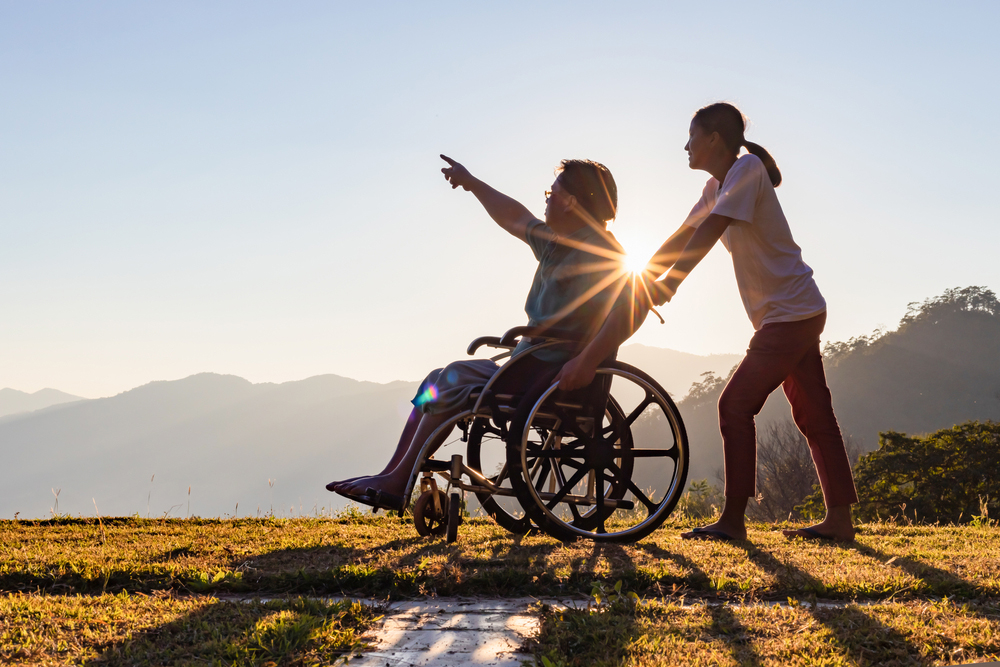Amyotrophic lateral sclerosis is a degenerative disease that primarily affects the nerve cells in the brain and spinal cord. While the initial symptoms are small and subtle, people with ALS will eventually need help with everyday activities like bathing, dressing, and eating.
Most people who develop ALS are between 55 and 70 years old. However, cases have occurred in younger people. In 2021, a team of scientists announced they had discovered a unique form of genetic ALS that affects children as young as 4. This childhood form of ALS links to the gene SPTLC1, which is part of the body’s fat production system.
ALS Symptoms
ALS causes motor neurons to die. As a result, they stop sending messages to the muscles, which makes them waste away. Over time, the brain loses its ability to initiate and control voluntary movements. Early symptoms include muscle twitches, cramps, and weakness; slurred speech; and difficulty chewing or swallowing.
As the disease progresses, it spreads to other parts of the body. Eventually, people with ALS cannot live independently and need help with every aspect of their daily lives. At some point, your loved one will be unable to stand, walk, talk, or feed themselves.
In more advanced stages of their illness, ALS patients lose the ability to breathe on their own and must depend on a ventilator. Most people with ALS die from respiratory failure within about three to five years from when the symptoms first appear. However, a small percentage survive for a decade or more.
Unlike other progressive conditions such as dementia, people with ALS typically maintain their ability to think clearly, remember things, and make decisions. Because they are fully aware of what is happening to them, your loved one may become anxious or depressed as their health deteriorates.
Who Is at Risk for ALS?
While ALS can affect anyone, males are slightly more likely to develop this disease. However, this gender disparity disappears with age. Some studies suggest military veterans are more likely to develop ALS, possibly due to exposure to environmental toxins.
Nearly all ALS cases are sporadic, which means the disease seems to occur randomly without specific risk factors or a family history. Still, researchers have found more than a dozen gene mutations that cause familial ALS.
ALS Diagnosis and Treatment
If your loved one shows any of the early signs of ALS, a physical and neurological examination can assess their symptoms and determine whether they are getting worse. While there is no single definitive way to diagnose ALS, a physician or neurologist may order specific tests such as an MRI or muscle biopsy to eliminate the possibility of other diseases.
There is no known cure for ALS, but a team of trained professionals can design an individualized treatment plan to keep your loved one as mobile, comfortable, and independent as possible. A doctor can prescribe your loved one medications that might slow ALS progression and help manage symptoms like muscle cramps, pain, depression, and insomnia.
Highly Trained ALS Care Companions
No matter what stage of ALS your loved one is in, our highly trained Care Companions are here to provide in-home care that promotes mobility and flexibility, while helping with everyday necessities such as hygiene and companionship. Our family caregivers will meet your loved one’s needs with compassionate treatment 24 hours a day.
Staying in a familiar environment can minimize the anxiety and depression that are so common with ALS, giving you more peace of mind that your loved one is in safe, comfortable surroundings. Through thorough training, Legacy Homecare LA lessens the physical and emotional impact of this disease. To learn more about what we offer and how it works, reach out today.






